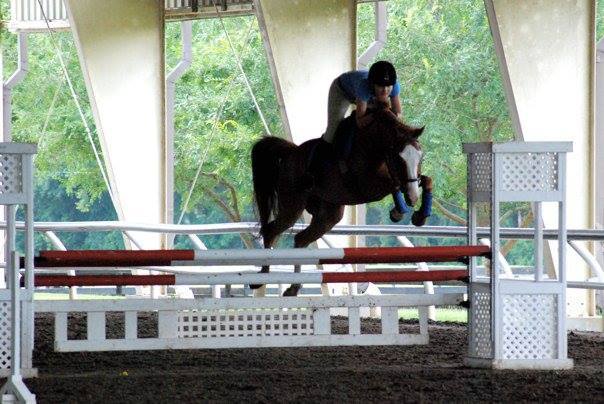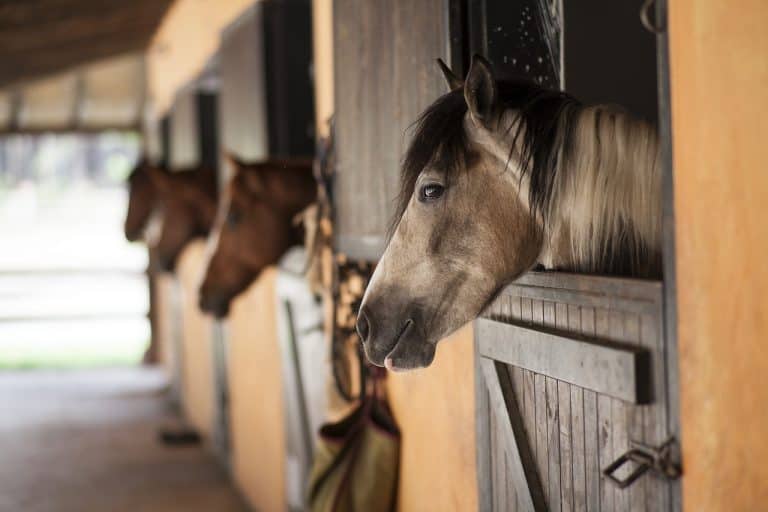Reducing the Inherent Risk of Horseback Riding
Horseback riding is a popular recreational activity that can be enjoyed by people of all ages and skill levels. However, it is important to be aware of the inherent risks involved in this activity. Inherent risks are risks that exist due to the nature of horses such as falls, injuries from being kicked, stepped on, or bitten, and accidents caused by environmental hazards.
There are several things that riders and instructors can do to reduce the risk of injury or accidents while horseback riding.
- Get proper instruction and training. This is the best way to reduce your risk while riding. Learning to ride safely by taking lessons from a qualified instructor. This will teach you the basics of horsemanship, how to control the horse, how to fall safely, and how to avoid hazards. As well as how and when to use a one-rein halt. In my lesson program, all my students know how to use one rein to stop their horse. I also make a point of telling everyone that anytime they are scared they should put their horse in a one-rein half. Then, after they are in control, we can talk about what happened, what I saw, and how I would have handled it. I have been teaching for a long time and the one thing I know is that I cannot teach someone who is scared. It doesn’t really matter if there was an issue or if it was just a perceived issue. If the rider is scared the horse needs to be stopped.
- Choose the right horse for your experience level. This is where an experienced professional instructor will make all the difference. If you are a beginner, you need a horse that is ready and able to teach you. As your abilities grow as a rider, you will be able to ride different horses. Each horse will teach you different things. Horses, just like people, have different personalities and strengths. Some horses love to teach beginners. It may be difficult to make a beginner horse move forward, but as an instructor, I would rather see my students work to get a horse to move than be scared when they can’t stop. As an experienced rider, you will be able to handle a more spirited horse, but it is always best to err on the side of caution especially when you are just starting.
- Wear proper riding gear. This includes a helmet, boots, gloves, and long pants. The helmet is the most important piece of gear, as it protects your head in the event of a fall. Unlike your bones, your brain does not heal so helmets are not optional. Your helmet must fit properly and should be replaced every 3 to 5 years. it is important to make sure that your helmet is certified to the ASTM F1163 standards safety standard, such as the ASTM F1163 standards or the PAS 015 standard in Europe. Bicycle helmets are not strong enough to protect your head while riding a horse.
- Be aware of your surroundings. Pay attention to the terrain, other riders, and any potential hazards. Riding on the side of the road may seem like a relaxing adventure, but when that big truck blows its horn, your horse may react and bolt. Riding in parades has always been something that amazes me. Horses in parades are on hard surfaces surrounded by people and loud noises. If I could picture a disaster waiting to happen horses in a parade would be it. If a horse were to get spooked during the parade, there is no place for the horse to go, with crowds on either side and usually a band in front. And if the rider were to fall, they would be landing on asphalt. There are horses that do well in parades, but I am sure they have been through a lot of training to do so.
- Listen to your horse. Horses are very good at communicating with their riders. If your horse seems nervous or agitated, it is important to pay attention and take steps to de-escalate the situation. This is another time when an experienced professional can help you. As a beginner rider, it is difficult to understand what your horse is telling you. Or to know how to distract him. And if you are nervous yourself you won’t be able to “hear” the horse. If a nervous horse makes you nervous the situation will only get worse.
- Never ride when you are tired or under the influence of drugs or alcohol. This will impair your judgment and make it more likely that you will make a mistake. Stress will also affect your horse and his behavior, if you have had a stressful day at work it might be a good time for a spa day and skip the ride.
- And never ride alone. An inherent risk is something that is always there. No matter what we do there is always a chance of falling off. There needs to be someone there who can help you if you need it. Someone who can call for help as well as take care of your horse.
You can help reduce the risk of injury or accidents while horseback riding. However, it is important to remember that there is always some inherent risk involved. Remember it is best to start slowly under the guidance of an experienced professional instructor on an appropriate horse.


